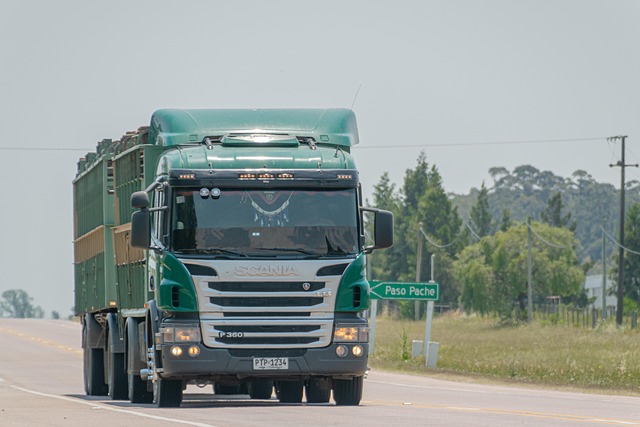Trucking businesses must grasp the intricacies of trucking business liability, focusing on insurance to shield against accidents, property damage, and injuries. Owning trucks imposes direct liability on the owner, necessitating comprehensive coverage, while leased vehicles introduce complex legal responsibilities that require meticulous policy review. Effective risk management involves tailoring coverage for owned and leased vehicles, regularly updating policies based on evolving risks and regulations, and staying informed about industry trends to minimize financial exposure while enhancing safety and efficiency.
In the dynamic landscape of trucking, managing liability risks is paramount. This comprehensive guide delves into the intricacies of trucking business liability insurance, offering expert advice tailored to leased and owned vehicles. We explore the legal distinctions between these two models, unraveling the complex web of insurance implications that follow. By weighing key considerations and best practices, operators can maximize protection, ensuring their businesses are equipped to navigate potential risks with confidence.
Understanding Trucking Business Liability: A Comprehensive Overview

Trucking businesses, whether leasing or owning vehicles, must grasp the intricacies of their trucking business liability. This encompasses both the legal responsibilities and financial obligations arising from operations on the road. Liability insurance plays a pivotal role in shielding against potential risks, including accidents, property damage, and injuries to third parties.
A comprehensive understanding of trucking business liability involves recognizing various coverage options tailored to specific needs. These may include bodily injury liability, which covers medical expenses and damages for injured parties, and property damage liability for repairs or replacement of damaged property. Additionally, understanding the difference between primary and excess liability is crucial, as it dictates the sequence of payment in case of claims, ensuring adequate protection throughout all layers of coverage.
Leased vs Owned Vehicles: Legal and Insurance Implications

In the context of a trucking business, whether vehicles are leased or owned has significant legal and insurance implications. Owned trucks carry their own set of risks for businesses. Primarily, the owner is directly liable for any damages caused by their vehicle, making comprehensive liability insurance crucial to protect against potential financial losses. This includes coverage for accidents, property damage, and injuries sustained by third parties.
Leased vehicles introduce a layer of complexity. Legal responsibility can shift depending on the terms of the lease agreement. In many cases, the leasing company may retain certain levels of control and liability, especially during the initial period of the lease. Businesses operating leased trucks should carefully review their insurance policies to ensure adequate coverage, understanding that their obligations might differ from those associated with owned vehicles in terms of trucking business liability.
Key Considerations for Choosing the Right Liability Coverage

When it comes to your trucking business, deciding between leased and owned vehicles impacts your liability insurance choices significantly. Key considerations for choosing the right coverage involve understanding legal responsibilities and risk exposure associated with each option. If you own the trucks, you’re directly liable for their maintenance and operation, demanding a comprehensive insurance policy that covers all aspects. Conversely, leasing allows shifting some financial burdens and risks to the lessor, but it introduces complex liability dynamics, requiring careful evaluation of policies that align with both your operations and lease agreements.
In the realm of trucking business liability, knowing when and how insurance coverage applies is crucial. Leased vehicles may have specific coverage requirements mandated by lease terms, while owned trucks demand a tailored policy to protect against unique operational risks. Effective risk management necessitates scrutinizing potential gaps in coverage and ensuring adequate protection for your business, drivers, and assets, whether on the road or idle.
Maximizing Protection: Best Practices for Risk Management in Trucking

In the world of trucking, maximizing protection through robust risk management is paramount for any successful business. When it comes to liability insurance, separating owned and leased vehicles requires a nuanced approach due to differing legal and financial considerations. For owned trucks, comprehensive coverage including collision, comprehensive, and liability insurance should be the foundation. This ensures that your investment is safeguarded against unforeseen events. However, for leased vehicles, understanding the terms of the lease agreement is crucial as it often includes specific liability provisions. Ensure these meet your trucking business’s needs before proceeding.
Best practices suggest regularly reviewing and adjusting insurance policies to align with evolving risks and regulatory changes. Diversifying risk by maintaining multiple lines of insurance can provide broader protection. Additionally, staying informed about industry trends and best practices in trucking business liability helps anticipate potential hazards and implement preventive measures. This proactive approach not only minimizes financial exposure but also enhances the safety and efficiency of operations.
In navigating the complex landscape of trucking business liability, understanding the distinction between leased and owned vehicles is paramount. This article has provided a comprehensive overview of legal and insurance implications, highlighting key considerations for selecting suitable liability coverage. By maximizing protection through best practices in risk management, trucking businesses can ensure they’re prepared for potential risks and liabilities. Remember that the right liability insurance is a cornerstone of any successful trucking operation, offering peace of mind and financial safeguard against unforeseen circumstances.
